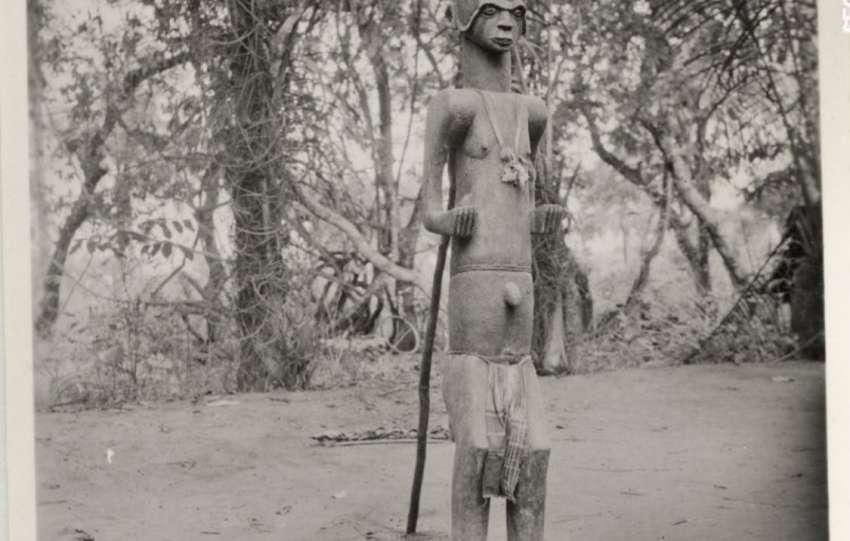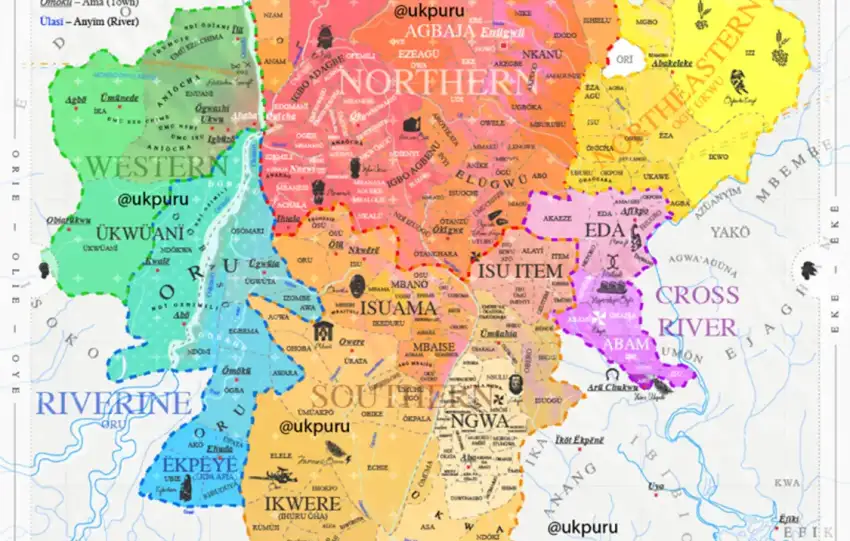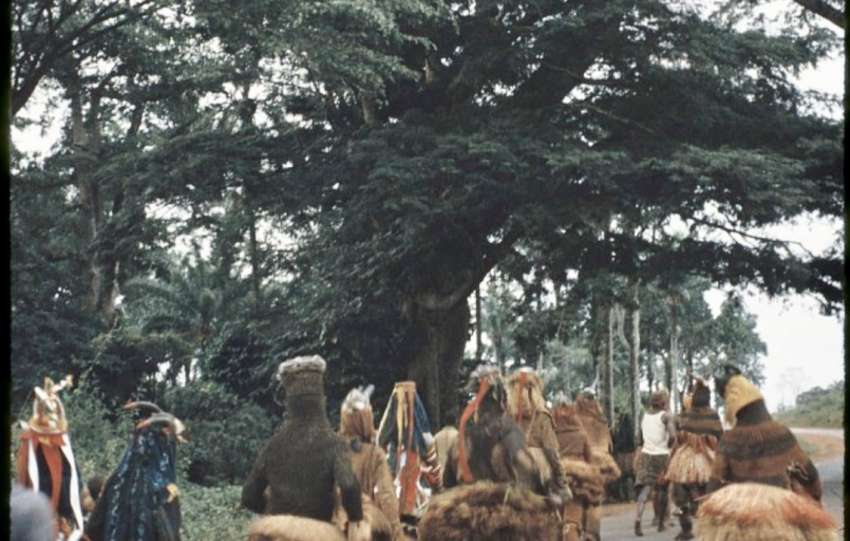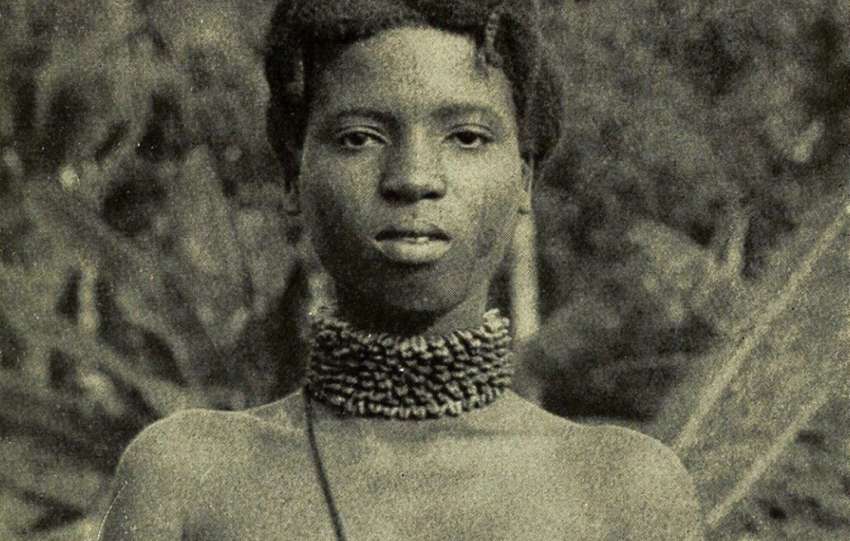!["A Kwale Ibo village, showing juju shrines and charms" Photo from [Tribes of the Niger Delta - P. Amaury Talbot], 1910.](https://ozikoro.com/wp-content/uploads/2024/09/kwale-Igbo.jpeg)
This image depicts a traditional Kwale Igbo village with notable juju shrines and charms. Kwale is located in the western part of the Igboland cultural area (modern-day Delta State, Nigeria), is part of the Ukwuani/Ndokwa people.
Juju shrines like the one seen here are spiritual centers, typically associated with the worship of local deities or ancestral spirits. These sacred sites served as places of prayer, offerings, and community rituals, playing a central role in maintaining social order and spiritual balance.
The charms that are visible in the image would likely be used for protection, prosperity, or health. These objects were often imbued with spiritual power through invocations and rituals performed by village priests or custodians of the shrine.
The huts surrounding the shrine, likely built from mud and thatch, reflecting traditional Igbo architecture, while the palm trees in the background symbolize the agricultural foundation of the community.
Such shrines were deeply integrated into the everyday life of the Kwale people, reinforcing the importance of spirituality, ancestral veneration, and community unity in pre-colonial Igbo society.
Reference:
Talbot, P. A. (1910). Tribes of the Niger Delta.




